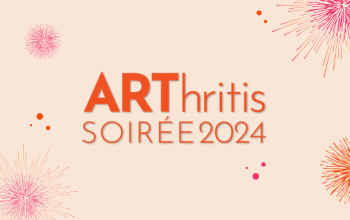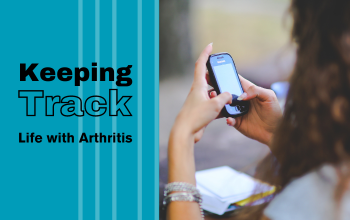Patients Taking Action to Help Patients
In December 2020, as people started to receive the first COVID-19 vaccines and hope returned to the world, Marie-Claude Beaulieu learned that she would not be receiving one.
Beaulieu lives with rheumatoid arthritis and takes two drugs that suppress her immune system. Initial vaccine studies had not included people with autoimmune diseases, so it was deemed too risky to give people like her a dose. The rational: the vaccine had the potential to worsen arthritis symptoms.
“This seemed like a paradox to me…refusing to give a vaccine that might protect vulnerable, immunosuppressed people like me from severe COVID for fear of exacerbating my arthritis,” Beaulieu said.
She refused to accept the decision and took action alongside another member of Arthritis Research Canada’s French patient advisory group, Les Patients Intéressés par la Recherche sur l’Arthrite (PIRA).
“I felt like I had a right to be part of the discussion,” said Beaulieu, who has also practiced family medicine for nearly 40 years. “We mobilized ourselves to find a solution to this unacceptable situation.”
They started by enlisting the help of Arthritis Research Canada Senior Scientist and rheumatologist, Dr. Paul Fortin, and rheumatologist, research scientist and infectious disease specialist, Dr. Inés Colmegna.

Invoking Change
The team quickly established a research project that granted immunosuppressed patients access to vaccination against COVID-19 and documented their response to the vaccine at the same time.
By May 2021, more than 200 people had received two doses of a COVID vaccine and preliminary results showed a lower response to SARS-CoV-2 antibodies in arthritis patients compared to the healthy controls after the first dose of a vaccine and a better response after the second dose.
“These findings encouraged public health authorities to prioritize our population of patients to receive a third dose more rapidly than the general public,” Beaulieu said. “This also demonstrates the important role patients play in arthritis research and how, when patients and researchers work together, a lot can be achieved in a short period of time.”
After patients and research scientists took action, there was a change in the public health decision, which gave people with autoimmune inflammatory diseases, like rheumatoid arthritis and lupus, the ability to safely receive COVID-19 vaccines.


























































